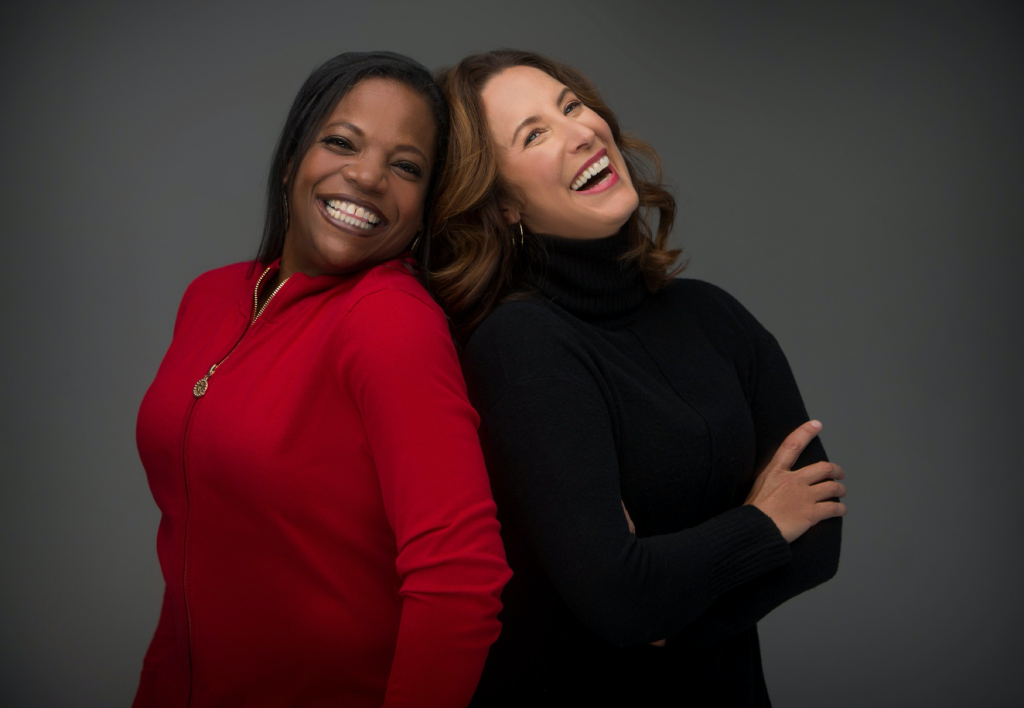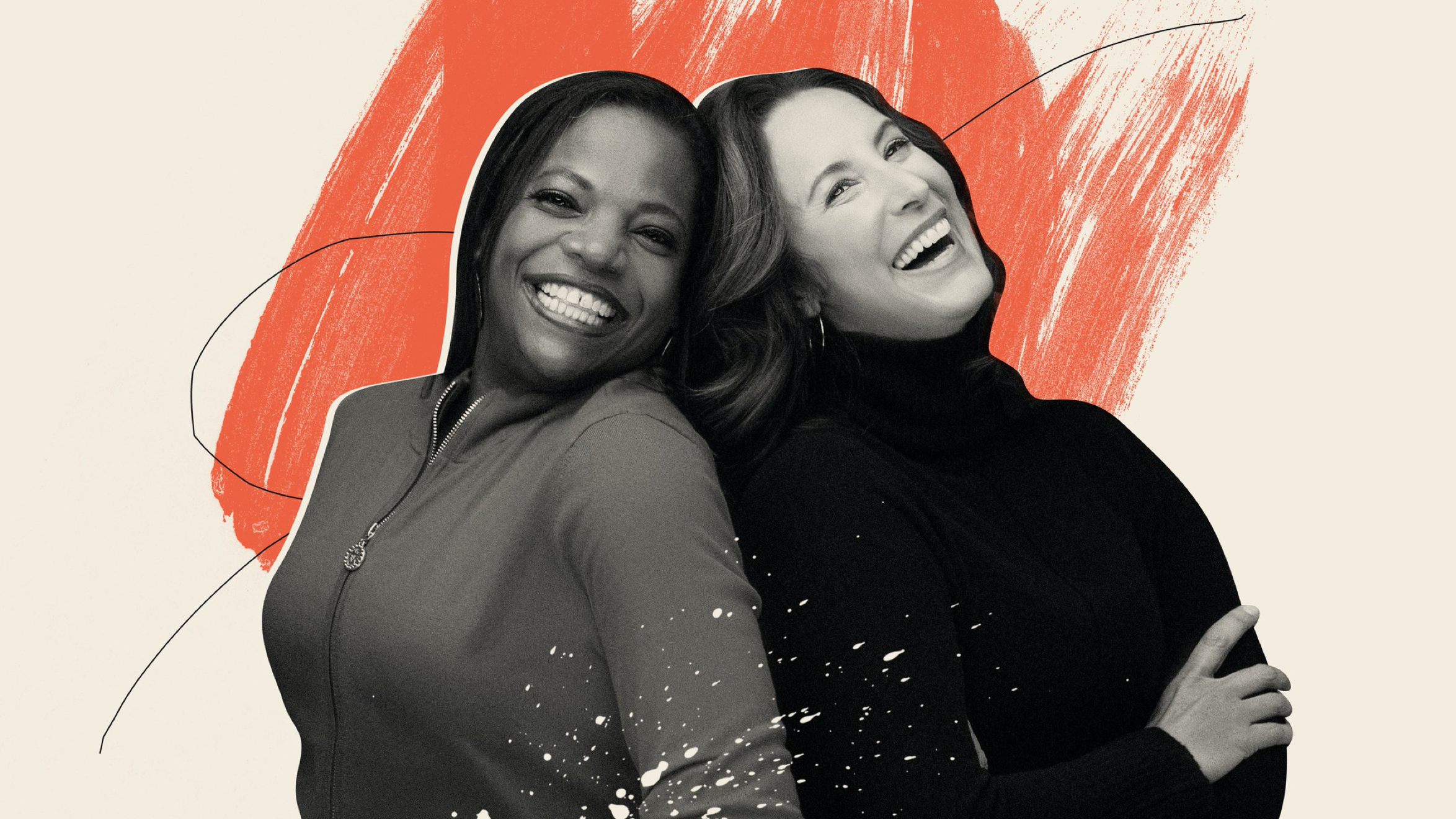One only has to wish for a juicy novel about admissions to a fancy private school and it appears, in the middle of a year in which the school system has fractured along class lines into those who can afford private learning pods and those doomed to six more months of Zoom schooling. The timing of Tiny Imperfections, one of Good Housekeeping‘s 20 Best New Fiction Books of 2020, is uncanny — it is arguably a novel 20 years in the making for the author team, Alli Frank and Asha Youmans, who have both worked as teachers for years in the West.
In the novel, Josie is a glam 39-year-old director of admissions at the kind of private school in San Francisco that sees families going to war over getting their 5-year-olds into kindergarten in preparation for one day getting into Harvard. Josie’s 17-year-old daughter, Etta, is determined to get her mother back on the dating scene after a hiatus, and Josie is hellbent on being the architect of her daughter’s illustrious future. (Helicopter parents play a supporting role as chief agents of chaos.)
F rank and Youmans co-wrote the story, which meant co-writing Josie, a Black woman. They talked about that dynamic (Frank is white and Youmans is Black), the outsize importance of teachers at this current moment, and the need to discuss race in classrooms, in a conversation on Romper, edited for length.
Asha Youmans: This back-to-school season is unlike anything anyone has experienced, not just with the pandemic but with the social justice movement. What role do teachers play in not only the pandemic response but also in helping kids understand the world around them?
Alli Frank: The role that teachers play with students who are learning and growing, in a pandemic, societal movement or otherwise, is one of nonjudgment. Of course, that is much easier in person when a teacher can sit down one-on-one with a child, put an arm around a child as they ask a difficult question. But online, it is the facial expressions, eye contact, followup email that will mean everything to a child who has put out into the world a vulnerable question or experience that they have had. We are not in a place in our country where we demonstrate forgiveness for mistakes that are made or assume the best intentions of our neighbors, community members, fellow Americans. Teachers, in how they interact with their students and facilitate class conversations, can help raise new generations of children who have greater empathy and love for fellow human beings than we are affording one another right now.
I know in my experience, kids have a way of asking difficult questions that we lose as an adult. They are curious and the way to understand the world is to ask an adult. You must have some interesting stories from your time as a teacher? And what did those experiences teach you?

Youmans: My youngest students were models of in-the-moment honesty. If I came into the classroom without popping a mint after that fourth cup of morning coffee, someone in my class would let me have it! Being told “Teacher Asha, your breath smells” doesn’t have to hurt; it can just be the truth. Having my ego knocked around for years means I am less afraid of hearing and accepting the truth. When it comes to answering questions, the information we share as parents and teachers — and when — can often depend on the developmental stage of our kids. As an early education teacher for most of my career, I learned to follow the lead of each child and use stories as the most common framework to help unravel the world around them. Listening to stories, sharing ideas with friends, communicating to develop empathy, respect, and understanding, takes time and patience. The outcome — a healthy, kind, valued, citizen of the world — is too important to rush.
S peak clearly and directly to children about realities and truths. They can handle it.
Frank: One of my favorite stories actually came from my 8-year-old daughter this past fall. Her school had an all-school meeting on race and social justice. I couldn’t be there, but it was not 15 minutes into the meeting when my phone started blowing up with group messages littered with parent complaints and opinions on how the information was being delivered to the students. When my daughter got home from school I asked her about the meeting and what she learned. She said, “I learned don’t do racism. Ever.” And that is the beauty of children; for them, our social ills are clean cut. If someone is hurting, stop hurting them. It is the adults that make everything so complicated and difficult to move forward in a positive direction. Speak clearly and directly to children about realities and truths. They can handle it. It’s when we complicate the story that confusion and fear arise in children.
Frank: Now feels like a pivotal time for teachers, and not just the ones standing in front of the classroom. And for parents who aren’t sure about how to talk to their children about heavy topics like Black Lives Matter, what role do they have?
Youmans: A parent’s role is to be purposeful when teaching a child about race. Imagine the ways in which parents introduce their children to the beauty and discipline of their faith. Think of the grandparents who bring their youngsters to clean up waterways to instill an appreciation for the planet. Consider the aunts and uncles who hoist the kids in their care on their shoulders as they march for human rights. Sharing your beliefs about the value and importance of human diversity should be just as purposeful.
In our book, our main character is a Black woman who becomes the head of admissions for an elite private school. From your point of view, what was the most challenging part about writing as a Black protagonist?
Frank: I know popular thought wants me to say it was extremely difficult. But while Josie is a Black woman, she is also an only child (so am I), a school administrator (I was for several years), a westerner who went back east for college (me, too), and has a daughter (I have two). Many aspects of Josie’s life are a direct reflection of mine. Now, how she carried herself through all our shared experiences as a Black woman, that I could not feign to know or understand. And that is the beauty of working with you, Asha. The book is a collection of both of our experiences, and I have the great fortune to get to write with a Black woman so we may create complex, nuanced, lovable, and hilarious characters.
As we wrote, we had to have a lot of tough discussions about how this character acted and talked to make sure it was authentic to the character and didn’t play to any stereotypes. Was that hard for you? Did you ever feel like I was questioning too much? Or just not understanding something?

Youmans: Part of what we were careful to do during every stage of writing this book was to take time to reflect and to be critical of our work. When it came to expressing experiences that were unique to the Black community, we had to evolve to a point in our collaboration where you were comfortable relinquishing all direction to me. Most of our work is truly 50-50, so it was hard for you not to do what you felt was your part. Ultimately you opened yourself to the realization of what you didn’t know. We both got used to the other leading and following when writing this story, and that made all the difference. I never felt like you asked too many questions. The development of our protagonist depended upon us both knowing her inside and out. It was up to me to teach you what it might be like to walk the world as a Black woman, as “Josie.” Such a thing can only be achieved through questions and answers, followed finally, by understanding.
W hen it came to expressing experiences that were unique to the Black community, we had to evolve to a point in our collaboration where you were comfortable relinquishing all direction to me.
I have always felt like our differences are what made the story so rich. We bring different things to the table and, in Tiny Imperfections, created something new. I think for this same reason it’s important to expose children to a diversity of people. How can parents practice what they preach?
Frank: Parents need to make sure they do, in fact, take the time to preach the beauty of living an intentionally diverse existence. As parents, myself included, we often think, “Of course my kid knows what I believe about X, Y, Z” just by virtue of being a family unit all living under one roof. But, no, do not assume your children know your beliefs as a family if you have not explicitly stated them. If children are looking at two white parents day in and day out, then that is what they will believe, as their parent, you want in a life partner for them, someone of the same race.
Have the conversation (repeatedly, no one and done) at the dinner table that you welcome any person regardless of race to love and respect your son or daughter. If your children only see their parents investing time in people of the same race, they are going to believe that is what you want for them as well, a community of like people. So again, talk to your child about how you welcome all children into your home. That there is a place for any child in your house regardless of race, religion, sexual orientation. And then around that dining table, be the parent that works to facilitate diverse dinner company. Show your children, in your own home, that you value surrounding yourself with a wonderful mix of people, you know, when we can have company over again. Hopefully, one day soon.
Tiny Imperfections is out now from Penguin Random House.




